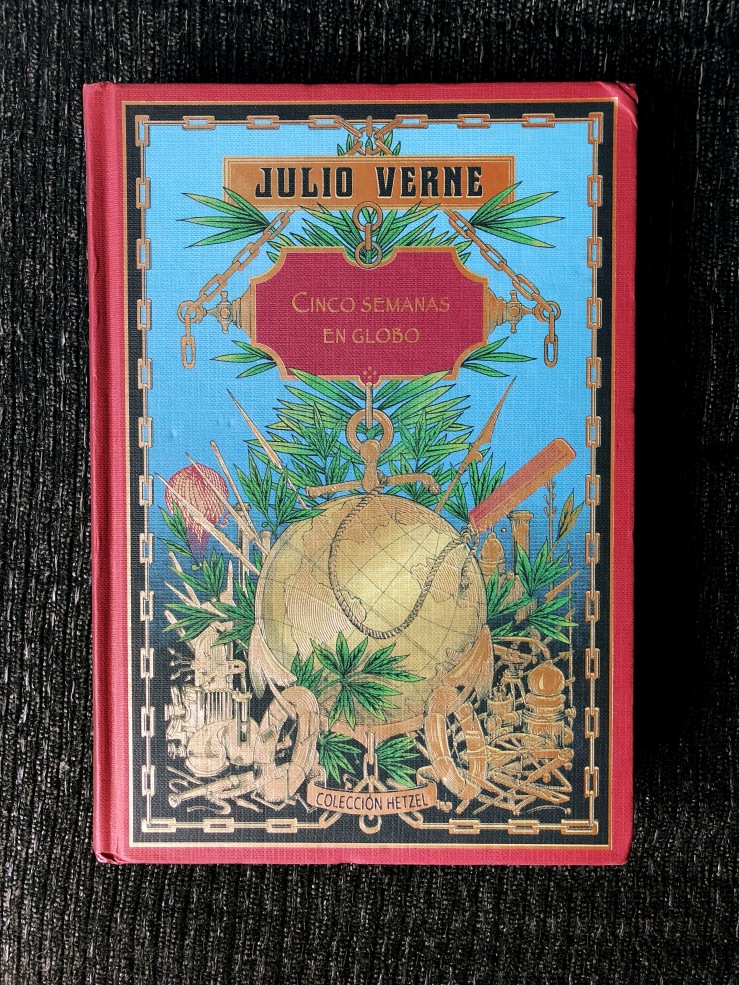So I remember reading Twenty Thousand Leagues Under the Sea when I was a little girl. I probably read it a couple times before I was 12. I also read Journey to the Center of the Earth, Around the World in Eighty Days, and School for Crusoes (I refuse to use the title Godfrey Morgan, because I read it in Spanish under the title Escuela de Robinsones). Of course, back then, twenty years ago, I wasn’t thinking of feminism or intersectionality, and I was amazed by the extraordinary deeds of these extraordinary men without even noticing that there wasn’t even the mention of a girl. Ever.
So now, I’m 34… with the goal of reading more diversily, at least 50% women authors. And I find myself reading Five Weeks in a Balloon for two reading challenges.
It was painful.
There was actually a mention to a woman: Madame Blanchard. She was the first woman to work as a professional balloonist, and also the first woman to be killed in an aviation accident.
But that was it.
Throughout the book I could read terrible examples of colonialism, of toxic masculinity, of discrimination, of exploitation of resources… That was how the 19th Century [male] mind worked, and that’s what brought us where we are: still fighting gun violence against black people (who were brought by the kind of guys portrayed in Jules Verne’s books as slaves), losing our last male northern white rhino (Sudan died just a few days ago, and there’s basically no hope in recovering the species), and with women still struggling for equality.
It was especially painful to read Five Weeks in a Balloon in March, just after seeing (twice) Black Panther. The fictionalized portrayal of what could have happened if people like Samuel Fergusson, Dick Kennedy, and Joe Wilson hadn’t destroyed Africa was such a pleasure to watch.
Anyway… I finished Five Weeks in a Balloon, and as much as I [think I] love Jules Verne, I will keep away from him for a while. A long, long while.

This is my entry post for the Monthly Motif reading Challenge: Travel the World, and also for the Back to the Classics Challenge: A classic travel or journey narrative.

